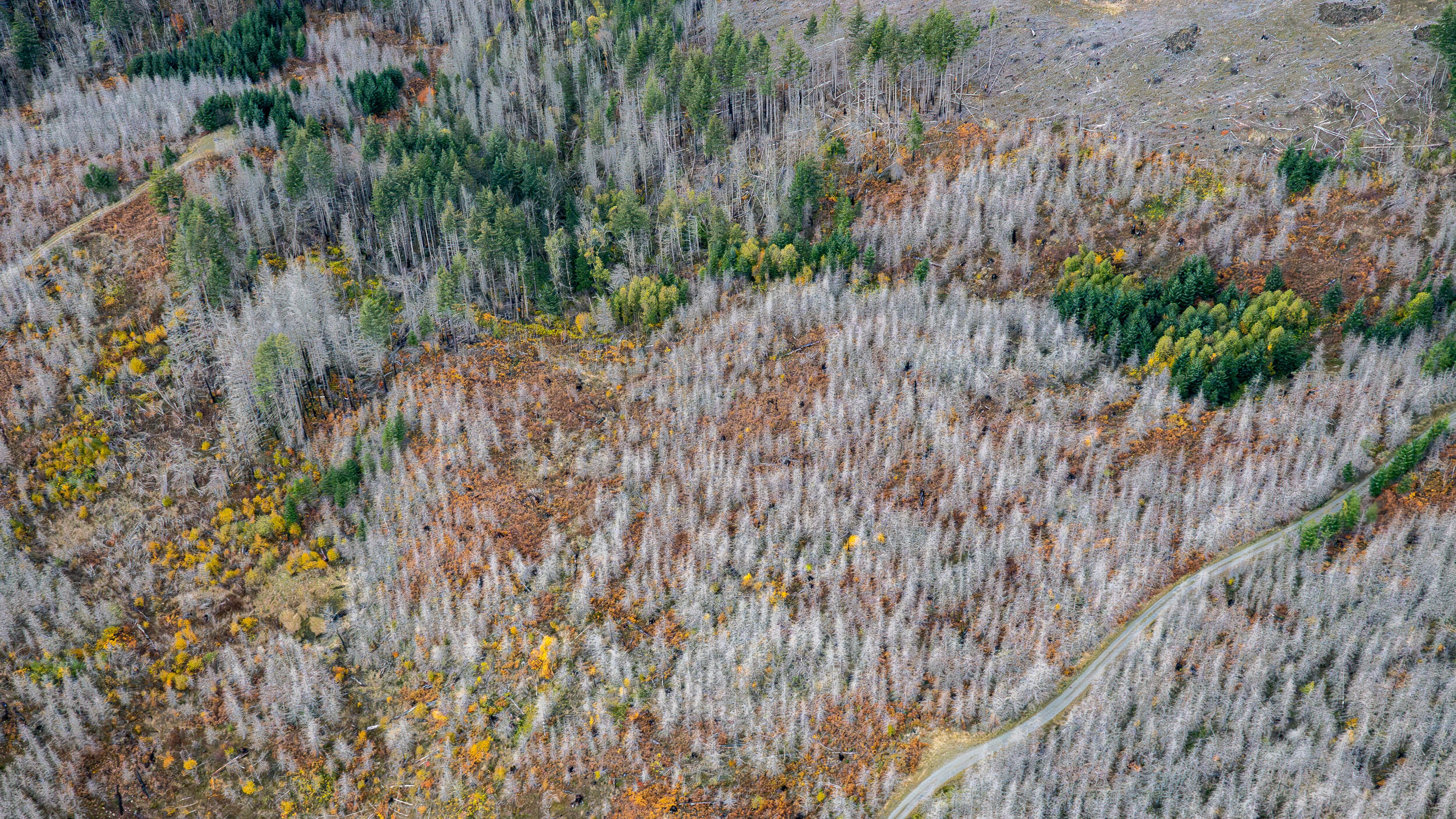For the past six months, a group of 35 lawmakers and industry representatives called the Wildfire Funding Work Group met to seek new sources of revenue for the Oregon Department of Forestry.
After a record wildfire season in 2024, the Department of Forestry, which leads the state’s firefighting efforts, ran out of money.
As Willamette Week reported, the agency’s financial picture was so dire that the Oregon State Treasury turned down ODF’s request for a short-term loan to help pay its bills. Soon afterward, Gov. Tina Kotek called the Legislature into a special session to provide a one-time infusion of $218 million to pay bills left over from a fire season that saw 1.9 million acres burn.
In the 2024 short legislative session, lawmakers knew the agency’s challenges would continue, so they assigned a work group to come up with options for the 2025 Legislature to consider.
The goal: The new proposals should provide at least $140 million a year in new money for firefighting and mitigation.
Over the weekend, a leader of the work group, state Sen. Jeff Golden (D-Ashland), unveiled a possible funding source: a one-time diversion of the kicker, Oregon’s unique personal income tax rebate.
In an op-ed published in The Oregonian, Golden, who chairs the Senate Natural Resources and Wildfire Committee, described the kicker option as “a one-time payment on a sliding scale from a few dollars for lowest-income taxpayers to six figures for the wealthiest Oregonians. In return the state will provide high-quality protection from catastrophic wildfire for the rest of your life.”
The idea would be to take a year’s worth of the kicker, invest it, and use the earnings to help fund wildfire response.
The kicker, however, is popular with Oregonians. On Feb. 3, the Oregon Catalyst, a conservative website, described the plan this way: "Senator lays out Kicker theft plan."
Democrats have railed against the personal kicker for decades to no avail. With super-majorities in both chambers this session, they could theoretically pass any bill they wish, but the work group also laid out a number of other options that lawmakers are expected to consider.
Here, in a document obtained by OJP, are the work group’s draft ideas:
New money: One alternative to diverting the kicker is increasing the deposit on Bottle Bill containers between a penny and a nickel and sending the increase to ODF.
Diversion of existing funds:
- Shifting certain insurance taxes that currently go to the general fund.
- Dedicating half a percent of the previous biennial budget, if there is money available.
- Taking a one-time transfer from the state’s Rainy Day Fund (effectively budget reserves).
- Dedicating a portion of Oregon Lottery revenues to ODF.
The work group is still working on a landowner assessment proposal that it expects to be part of the solution.
Among the ideas it considered but won’t move forward with: a property tax fee for all landowners in the state; an increase in hotel taxes; a tax on tires; a tax on real estate investment trusts that manage timber properties; and a surcharge on electric bills.
ODF spokeswoman Joy Krawczyk emphasizes the Jan. 29 document is a draft aimed at shaping a long-term solution and is subject to change until the work group presents its work to the Legislature Feb. 18.
“The need for durability necessitates solutions that include General Funds and other sources of revenue,“ Krawczyk says in an email. ”The work group identified the need for equitable, affordable and sustainable contributions that reflect the all-Oregon nature of the escalating wildfire crisis, while also keeping an eye toward avoiding or mitigating inequities and negative impacts on lower income Oregonians."
This story was produced by the Oregon Journalism Project, a nonprofit investigative newsroom for the state of Oregon. OJP seeks to inform, engage, and empower Oregonians with investigative and watchdog reporting that makes a significant impact at the state and local levels. Its stories appear in partner newspapers across the state. Learn more at oregonjournalismproject.org.
